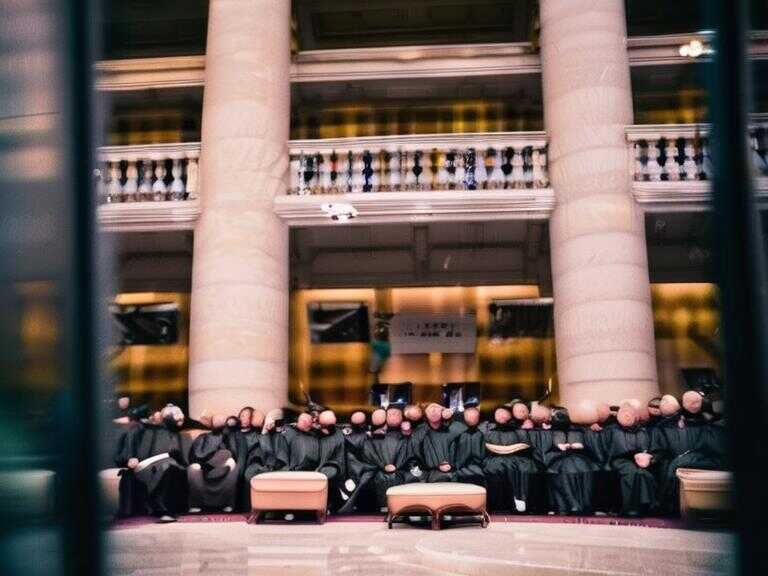
Supreme Court Sides With Trump, Undermining Lower Courts
The Supreme Court, under conservative control, is unyielding in its support of Trump's actions, undermining lower courts and escalating tensions among justices.

The balance of power within the American government has always been a delicate dance, with each branch striving to maintain its autonomy while ensuring the overall functioning of the nation. However, recent decisions by the Supreme Court have raised concerns about the extent to which the judiciary is willing to check the actions of the executive branch, particularly those of President Donald Trump.
Since Chief Justice John Roberts administered the oath of office to Trump on January 20, 2017, the question of whether the justices would act as a restraint on a president who campaigned on upending established norms has been at the forefront of legal and political discourse. The answer, emerging after six months in office, appears to be a resounding no.
A Court Embracing Executive Power
The Supreme Court's recent rulings have emboldened President Trump by allowing him to bypass traditional checks and balances. These decisions range from permitting the firing of independent regulators to dismantling the Department of Education and facilitating the deportation of migrants to potentially dangerous countries without citizenship or connections.
This trend has deepened the fissures within the nine-member court, leading to public condemnations and personal strains revealed in written opinions and appearances. The conservative majority, which controls the court, has repeatedly undermined the work of US district court judges who are tasked with interpreting and upholding the law.
The Erosion of Judicial Independence
Justice Elena Kagan, in her dissenting opinion on a recent case, warned that the court's actions could facilitate a "permanent transfer of authority, piece by piece, from one branch of Government to another." This concern reflects a broader apprehension about the erosion of judicial independence and the potential for an unchecked executive branch.
The liberal justices, including Sonia Sotomayor and Kagan, have consistently protested against these decisions in strong terms. They argue that the court has a duty to check lawlessness and prevent the executive branch from exceeding its constitutional limits. Notably, Sotomayor expressed her personal anguish over these rulings, revealing the emotional toll they take on the justices.
The Silence of the Conservatives
In contrast, the six Republican-appointed conservative justices have shown no fear or hesitation in endorsing Trump's actions. They have offered no warnings against potential overreach and seem determined to avoid any disapproval of his agenda, including his controversial proposal to end birthright citizenship.
This silence from the conservatives raises questions about their commitment to upholding the rule of law and ensuring a balance of power within the government. It suggests that they may be prioritizing political expediency over their constitutional responsibilities.
A Divided Court in Uncertain Times
The current state of the Supreme Court reflects a deeply divided nation grappling with fundamental questions about its identity and future. The court's willingness to embrace executive power, particularly in the hands of a controversial president, has far-reaching consequences for the American legal system and the delicate balance of power that underpins democracy.
As the Supreme Court continues to navigate these contentious issues, it faces immense pressure to uphold its role as an impartial arbiter of justice while also safeguarding the fundamental principles enshrined in the US Constitution. The decisions it makes will undoubtedly shape the nation's political and social landscape for years to come.
The concern is that, under the current circumstances, Trump's actions may go unchecked by the judiciary, leading to an erosion of democratic norms and a concentration of power in the executive branch. This raises serious questions about the future of American democracy and the ability of its institutions to withstand such challenges.
Share news















